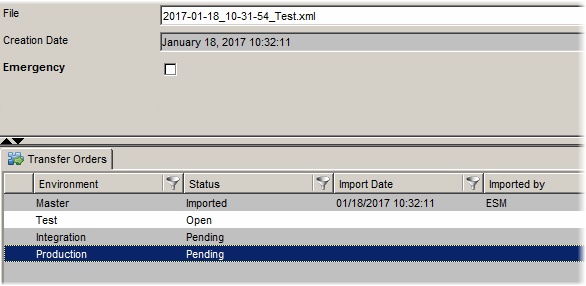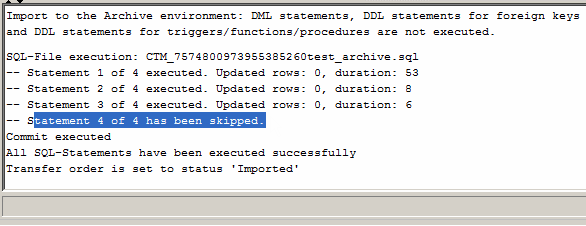Data Archiving and CTM
Data Archiving is based on the Archive Session. Most of the SQL structure changes controlled by CTM are also relevant for the Archive session database. Therefore it is necessary to register an environment for the Archive session to the CTM.
Please see also the 'Data Archiving' section for general info on data archiving.
Setting up the Archive Session
Preconditions
- The session configuration contains the Archive Session.
It is necessary because a separate database is needed for archiving.
To register an environment for the Archive session:
- Open the 'Valuemation Environments' catalog.
OR
go to the 'Catalog' menu in the toolbar
OR
right-click to call the context menu on the 'Valuemation Environments' catalog.
- Check that the Active Sessions are matching the Defined Sessions.
- Start the 'Auto Create Environments' command.
See also the 'Auto Create Environments' topic.
Note: The environment may be also created manually. However, the auto create process is less prone to errors.
- The assistant for Valuemation Environment object creation is initiated.
Go through the creation process as described in the ''Auto Create Environments' topic.

As a result, a new Environment for the Archive session is added.

- Now assign the Archive environment session as a Follow-Up environment.
It should be on the same hierarchical level as the Production environment (a parallel environment).
Note: You can also run the 'Restore Sorting Order' command from the context menu which restores the initial sorting order for this catalog.
XML files and SQL scripts with the Archive Session
When the Archive Session has been set up, the import of XML files or the execution of SQL scripts can start.
With respect to the Archive Environment, the following rules apply:
- Every XML updates such as customizations are not relevant for the Archive database. It means that every customization which is related to XML will not be imported to the Archive session.

Practically it means that whenever you create a transfer and then look at the 'Transfer Orders' in the 'Customization Object', there is no transfer order for the Archive environment because it is not relevant.
- Unlike the XML updates, SQL files are relevant and accepted for the Archive Environment.
When you import an SQL file with some structure changes (which you would like to put into all environments) and it gets registered by the the Master environment, you can see there is a transfer order for the Archive Environment as well when you look at the 'Transfer Orders' in the 'Customization Object.
However, note that the Importer always validates the SQL statements and skips automatically:
- DML statements (INSERT, UPDATE, DELETE)
- CREATE and ALTER of foreign key statements
- CREATE, ALTER, DROP of triggers, functions and procedures
When you start importing to the Archive environment, a warning message concerning the skipped statements appears.

Note: The background for skipping the SQL statements within the SQL files is purely technical. The Archive DB should not contain foreign keys, triggers and functions. The Archive database provides shadow tables for storing the Archive data and the elements such as foreign keys, triggers and functions could cause some potential technical problems when archiving is executed.
See also the 'Archive Maintenance' and 'What is the Archive' topics in the 'Data Archiving' section.